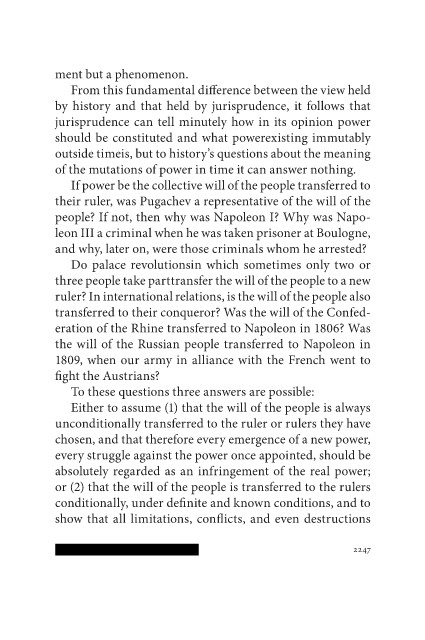Page 2247 - war-and-peace
P. 2247
ment but a phenomenon.
From this fundamental difference between the view held
by history and that held by jurisprudence, it follows that
jurisprudence can tell minutely how in its opinion power
should be constituted and what powerexisting immutably
outside timeis, but to history’s questions about the meaning
of the mutations of power in time it can answer nothing.
If power be the collective will of the people transferred to
their ruler, was Pugachev a representative of the will of the
people? If not, then why was Napoleon I? Why was Napo-
leon III a criminal when he was taken prisoner at Boulogne,
and why, later on, were those criminals whom he arrested?
Do palace revolutionsin which sometimes only two or
three people take parttransfer the will of the people to a new
ruler? In international relations, is the will of the people also
transferred to their conqueror? Was the will of the Confed-
eration of the Rhine transferred to Napoleon in 1806? Was
the will of the Russian people transferred to Napoleon in
1809, when our army in alliance with the French went to
fight the Austrians?
To these questions three answers are possible:
Either to assume (1) that the will of the people is always
unconditionally transferred to the ruler or rulers they have
chosen, and that therefore every emergence of a new power,
every struggle against the power once appointed, should be
absolutely regarded as an infringement of the real power;
or (2) that the will of the people is transferred to the rulers
conditionally, under definite and known conditions, and to
show that all limitations, conflicts, and even destructions
2247

